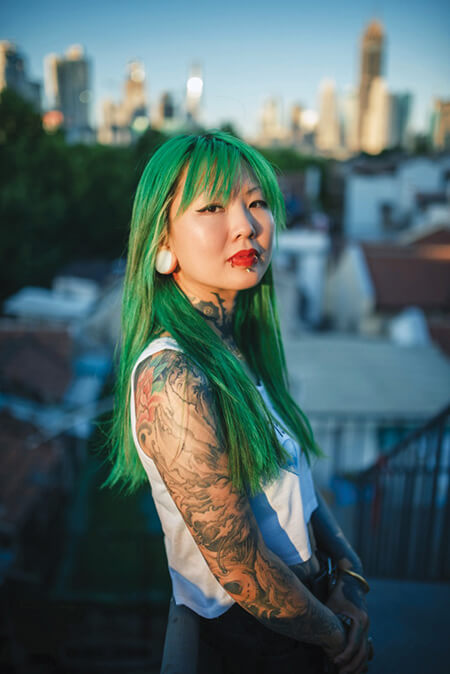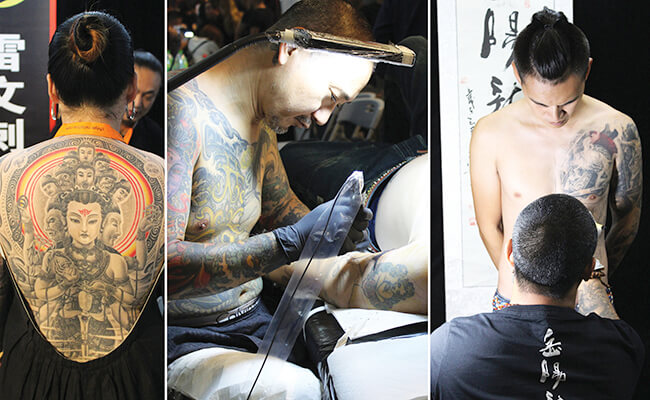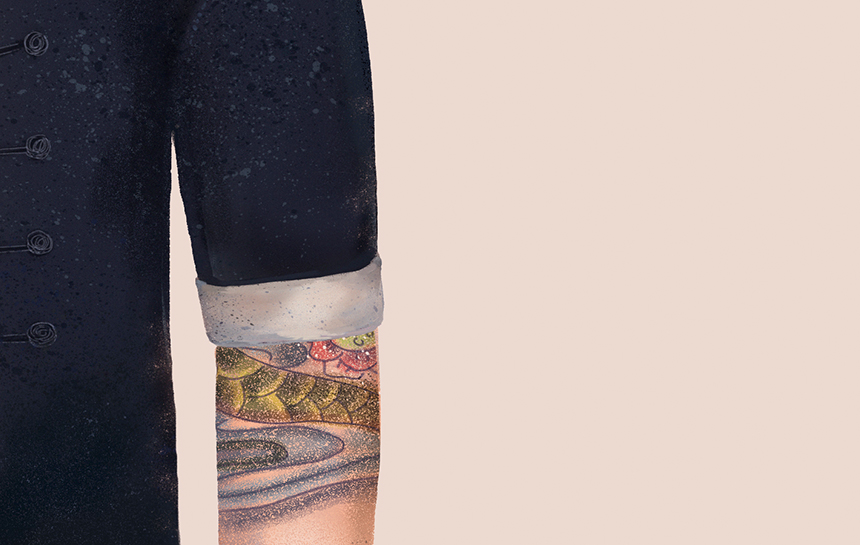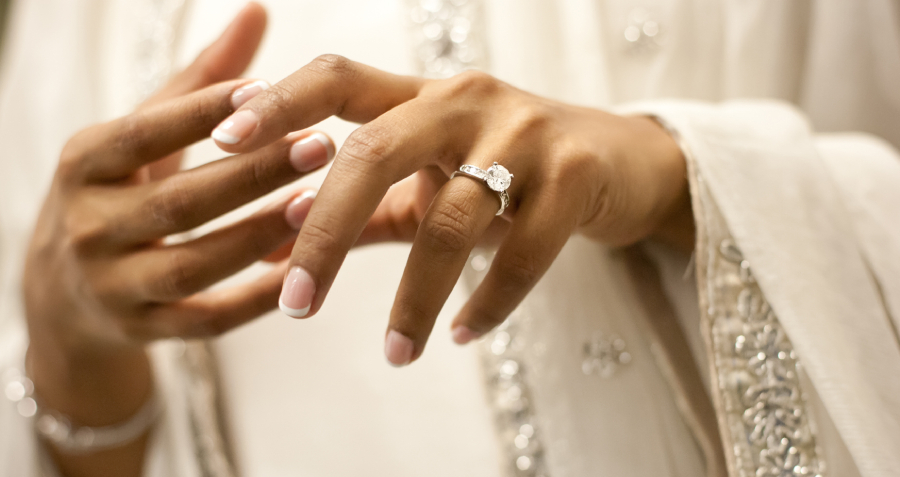
Chinese millennials are getting tattoos in record numbers, but some are being forced to keep them hidden
But though she may not fit in at their parties, Zhuo is a darling of the city’s moneyed elite. Fashionistas, financial workers and fuerdai—the children of the city’s nouveau-riche—line up to get inked at her grungy studio, located in the prestigious former French Concession area. A design by Shanghai’s “queen of tattoos” can cost $3,000 or more.
Tattoo culture has exploded in China in the last few years, as the country’s younger generations abandon centuries-old prejudices against the practice and embrace it as an expression of individuality. When Zhuo, a native of Harbin in China’s far north, set up her first studio in Shanghai in 2007, there were “maybe a handful” of tattoo parlors in the city of 20 million people, she says. Today, there may be up to 4,500, according to Jing Xi, author of the popular blog Patch Tattoo Studio, and as many as 300,000 nationwide.
Tattoos are now an everyday sight on the streets of China—especially in Shanghai, which has been dubbed China’s “tattoo mecca.” Since 2015, the city has celebrated its flourishing tattoo culture at the annual Tattoo Extreme Expo. Held each August, it attracts over 20,000 visitors. In a sign of the growing mainstream appeal of tattoos, this year’s expo even drew families with small children in tow, who enjoyed practicing their needle skills at the event’s “tattoo school.”
Tainted Past
This change in attitudes is extraordinary given the depth of the stigma against tattoos in Chinese culture, which dates back two millennia to the times of Confucius. At the beginning of the Classic of Filial Piety, believed to have been written 2,500 years ago, the Great Sage explains that the sanctity of the body was the basis of filial respect.
“In Confucian culture, you’re supposed to return your body to the ground as your parents gave it to you, unblemished, no piercings or tattoos,” says Carrie Wiebe, Professor of Chinese at Middlebury College in the United States. “That’s still a closely-held value to some people, but in the traditional period tattooing was really one of the most unfilial things one could do.”
Over the centuries, tattoos also acquired a criminal connotation. Convicts, military deserters and prostitutes were often tattooed as a permanent reminder of the sins they had committed. “These were signs of shame that would stain you forever,” says Wiebe.
When China’s organized crime groups, the “Triads,” emerged in the 18th and 19th centuries, their tattoos acted both as proof of membership of a particular gang and of their status as outlaws. When Mao Zedong’s Communist Party took power, tattoos were doubly condemned as not only a mark of loose morals but also proof of an unhealthy bourgeois individualism. As Weihe Xu, also a professor at Middlebury, explains: “Revolutionary heroes never had tattoos.”
These prejudices persist in many parts of Chinese society, particularly among the elderly, according to Zhuo.
“The bad feelings mainly come from the older generations,” she says. “They look at someone with tattoos and think: ‘This is a kid with no future.’”
Some employers still frown on employees with ink. An investigation of factories run by manufacturing giant Foxconn by China Labor Watch in June found that managers check new hires for tattoos. The People’s Liberation Army, meanwhile, only relaxed its zero-tolerance stance toward ink in 2011. Applicants with face or neck tattoos that do not exceed two centimeters in width can now enroll.
Many young people still worry about the consequences of getting inked for the first time. Hai Xiang, a personal trainer in his late twenties, recalls fearing that he might risk his career before getting his tattoo, a portrait of martial arts legend Bruce Lee on his upper arm.
“I thought that this was always going to be something that I would have to hide from my bosses, or at interviews,” says Hai. “When I was young, my parents would tell me again and again how no one would ever hire me if I had piercings or tattoos.”
But the generations born after 1980, with no memory of the austerity of the Cultural Revolution, are gradually challenging these attitudes.
“Many of the younger generation to whom tattoos are appealing have something of a cultural amnesia about what happened in the 1960s and 1970s,” says Wiebe. “They aren’t afraid of expressing themselves.”
The shift began slowly but has accelerated in recent years. Liao Xiao, a student at Shanghai International Studies University, remembers online memes circulating around his college a few years ago.
“There was a picture on social media of a foreigner with a full-sleeve helping an old homeless Chinese woman,” says Liao, who is in his early twenties. “The caption read: ‘not all people with tattoos are bad people’—like it was a new idea.”
And the pace of change has accelerated, according to Zhuo. Her studio now has a long waiting list. “We’ve become more and more successful in terms of revenue and have multiple bookings every day of the week and open late into the night,” says Zhuo.
Where once her clientele was drawn mainly from Shanghai’s expat community, today Chinese millennials with high incomes make up half her bookings, and this segment is growing fast. Even young women are shunning paternalistic traditions and openly displaying their inkwork in public.
“What my female clients are asking for is changing,” says Zhuo. “It used to be something small and easy to hide, but now they want sleeves and images on, say, the neck.”
Gang Shao, a veteran tattoo artist who has developed a cult following in Shanghai, believes that the rise of individualism has made tattoos more desirable to Chinese millennials.
“Five to ten years ago, everyone who came into my shop would go straight to the flash book of set designs,” says Gang. “Now, it’s more acceptable to explain their idea to an artist who can design something special for them.”
One of Gang’s young pupils, who goes by the English name Leo, explains that his tattoos are deeply personal. “I want to remember some things or people which have been important in my life,” he says. On Leo’s left arm is written the Chinese idiom “act according to one’s capabilities,” which his grandfather often said to him as a child. “It gives me hope and power for my life,” he says.
As they have become more fashionable, tattoos have also become a sign of privilege for young Chinese, and even more so for those who can afford a high-quality piece by Zhuo.
“Tattoos are now a way for the younger generations to display their wealth,” says Zhuo. “Just as you buy Gucci or fake Gucci, in tattooing you can get expensive, quality tattoos or cheap, lower-quality ones.”

Dispirited Culture
But there has also been a backlash from some quarters of society, which see tattoos as emblematic of the rise of a “dispirited culture” among China’s youth. In January, the government ordered any musician or actor with a tattoo to be banned from all media sources. China’s state media regulator issued four ‘do nots’ to producers, including the prescription: “absolutely do not use actors with stains, scandals and problematic moral integrity.”
Rappers were singled out in particular. PG One, the heavily-tattooed star of hit reality TV show The Rap of China, disappeared from screens almost completely for several months, only making a low-key comeback in April.
Sina, the parent company of social media platform Weibo, often referred to as “China’s Twitter,” also took down content, explaining that the government “specifically requires that programs should not feature actors with tattoos [or depict] hip-hop culture, subculture and dispirited culture.”
Two months later, China’s soccer players were targeted by a directive stating that stars in the country’s professional leagues must have “no visible ink.” The issue captured global attention during an under-23 friendly between China and Wales in March, when members of the Chinese team took to the field in skin-colored bandages and tights hiding their tattoos.
So far, the reaction of China’s millennials who like tattoos has been one of frustration. After the Sina announcement, many Weibo users condemned the censorship. “How can a government with high culture have such childish logic?” one netizen wrote.
Hai Xiang, the personal trainer, is bemused by the campaign. “I really don’t understand the point of it,” he says. “I think that most of the people running the government are just from that older, conservative social group.”
Many tattoo artists consider the notion that tattoos are somehow anti-social as deeply ironic. From their point of view, the country’s developing tattoo movement helps young people connect with and popularize traditional Chinese culture. Gang has noticed that his clients are increasingly asking for designs inspired by traditional tales and the Chinese zodiac. He sees the embrace of these styles by young Chinese as a kind of “homecoming,” as these elements have been fetishized in the West.
“The (Asian) style popular among Westerners comes from Japan, and this in turn comes from traditional Chinese artistic techniques,” says Gang. “What people in China are seeing on celebrities and the internet has Chinese roots.”
Nevertheless, the voices of concern about tattoos are unlikely to disappear, according to Andrew Sullivan, Director of the China Policy Institute at the University of Nottingham.
“As arbiter of society’s moral health, the party-state has an increasingly intolerant attitude toward body art,” says Sullivan. “This is reanimating the connection between ink and deviancy that was never really expunged from mainstream society, popular culture or within companies and family.”
In fact, Sullivan suspects that the media ban could be the start of a wider conservative reaction as the more traditional segments of society close ranks against all forms of “spiritual pollution.”
“Chinese public opinion is rather conservative,” says Sullivan. “Moves to circumscribe individual expressions and behaviors like recreational drugs and promiscuity, which tattoos have unwittingly come to symbolize, are not unpopular outside of urban youth and subcultures.”
Hundred Flowers
Most of the tattoo community, however, is sanguine about the official condemnation. Jing Xi, the blogger and self-employed tattoo artist, expects that the government’s moralizing will be self-defeating. “Though a lot of older people may agree, the crackdown may have the opposite effect and lead young people to rebel as they always do,” says Jing. “Either way, there will probably be more discussion and engagement surrounding tattoos as a result—and this will be good for business.”
In fact, many artists welcome more government oversight of the industry, as the mushrooming of parlors across China has led to the spread of poor-quality work and unsafe practices.
“Nowadays, there are thousands of tattoo shops in Shanghai and it’s become a very competitive business,” says Zhuo. “In the past, we’ve had apprentices who have left our training program and secretly opened their own tattoo shops. These guys have few skills and no patience, yet want to get straight into tattooing, ruining skin for life.”
The backlash may also prove to be a short-term phenomenon. Though older officials and employers continue to enforce traditional cultural mores, a new generation of Chinese leaders with different attitudes is emerging.
“I’ve had clients bring their colleagues and managers to the shop,” says Zhuo. “It can become a social thing.”
Before she returns to work, Zhuo tells the story of a client who is a senior executive at a large company. “She’s been coming here for years,” says Zhuo. “She’s got a full back, sleeves down both arms, neck and scalp, but her colleagues have no idea—she covers it all up every morning before going to the office.”
Zhuo imagines a day not so far in the future when the senior executive’s elaborate cover-up will no longer be necessary.




















